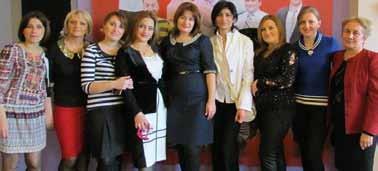
Description of the project: This project aims to mitigate and adapt to the many gender related insecurities due to climate change in Georgia by supporting women farmer cooperatives. Our association’s topics range from risks to opportunities for women to participate in decision-making processes that affect their lives, to women’s increased dependence on informal loans to ensure family food security, to the lack of mobility for women to avoid ‘disaster’ stemming from their domestic and agricultural responsibilities, and a lack of access to capacity building services such as education, credit, training, and health.
Climate Impact: One of the great challenges of the 21st century will be to feed a rapidly growing population. Current projections suggest the number of people on earth will outpace our ability to feed them by 2050. Food insecurity can lead not only to famine but also to political instability and violence. Our project, through a consortium of universities and a research institute, looks at how we can correct this imbalance through education, innovation, and advocacy by expanding existing educational programs and research priorities to place a greater emphasis on the post-harvest preservation of food.
Gender Impact: Drought, flooding and heavy rains are negative impacts of climate change and deeper analysis of our project highlights how climate justice for women focuses on the social vulnerabilities women face. The agricultural cooperatives we work with, holistically address women’s vulnerabilities in the context of climate change. The Georgian Women Farmers, for instance, directly responds to women’s climate and social vulnerabilities in their activities. Our project is connected with benefits to bring forth discourse around distinguishing between rural women, agricultural cooperatives, gender, and climate change and vulnerabilities associated with poor sectoral responses to the needs of the rural poor and the causes of women’s vulnerabilities and gender inequities in a climate change context.